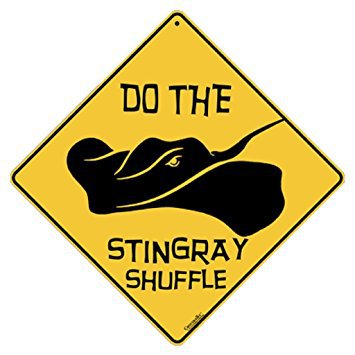STINGRAYS! GOOD-BAD-NEUTRAL?
Stingrays! Bad or Good?
If you’re unsure about your stance on stingrays, we don’t blame you. They’re often portrayed as deadly, cold-blooded creatures who wield their venomous tails like a weapon. They’re also 99% of the time not hurtful or mean creatures. The best way to form an opinion is by learning a little more about the stingray.
When people see stingrays in the water the first reaction people make is get me out of the water! But they usually act kind and gentle around humans. Its only when a stingray feels threatened that beach-goers have to worry. Most of the stingray attacks in California happen when a human swims above or in front of them, either creating no escape route for the stingray or they accidentally step on them. Of course any animal that is cornered or scared can be dangerous, just as a stray dog can be dangerous if backed into a corner.
Trying to learn how to surf Private Surf Lessons
The stingrays do not want to eat or hurt you!
The diet of these creatures consists of small animals that live in the sand – mostly shellfish, small worms. The stingray feeds by hovering directly over the sand and fluttering the wing-like edges of its body disc to clear away the top level of sand. This exposes the little creatures that live just under the sand, and the stingray plops on top of them and eats them.

How to Avoid Stingray Attacks
Stingray Attacks are more likely to happen to swimmers or surfers who are entering or exiting the ocean through shallow water and accidentally step on a stingray.
Naturally, the stingray will react. When the stingray is stepped on, it quickly whips its long tail forward and down, which jabs the stinger at the base of the tail into usually the foot or leg of the person. This is a defensive maneuver designed to remove the beachgoers foot from the stingray’s body, and it works. To avoid stepping on top of a stingray, beachgoers can shuffle their feet when entering and exiting the water. We call this the stingray shuffle! The Stingray Shuffle is simply sliding your feet along the sand instead of taking big steps. To a stingray, these sliding movements feel more like vibrations, which scares them away. If you take big long steps the stingray will not feel these vibrations and will stay put until you step on their backs, which most the time ends up in getting stung. Here is a video that will show you how to stingray shuffle. Go watch this video that demonstrates how to do the stingray shuffle and what to do if stung https://www.youtube.com/watch?v=9a6QRcSBQec

How to Treat an Injury
Treating stingray wounds requires submerging the affected area in water as hot as the individual can stand, around 110 degrees. If parts of the barb are not lodged into the wound, this type of treatment can easily be done at home instead of the doctor’s office; however, it’s important to note, if the barb is deeply lodged into the skin and/or the area does not seem to be healing, a trip to the emergency room and some antibiotics are in order. Carefully remove any surface debris from the wound with tweezers and continue to soak the area in hot water.
Thanks to Collin Walker and the great team at Corky Carroll's Surf Camps for providing this content. To learn more about either one of the great Corky Carroll Surf Camp locations, please below:














